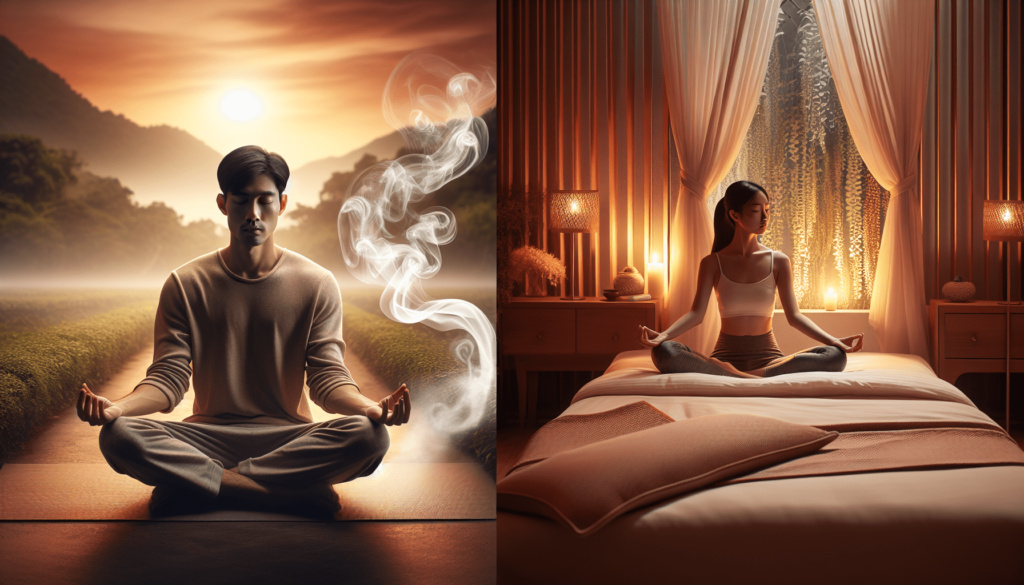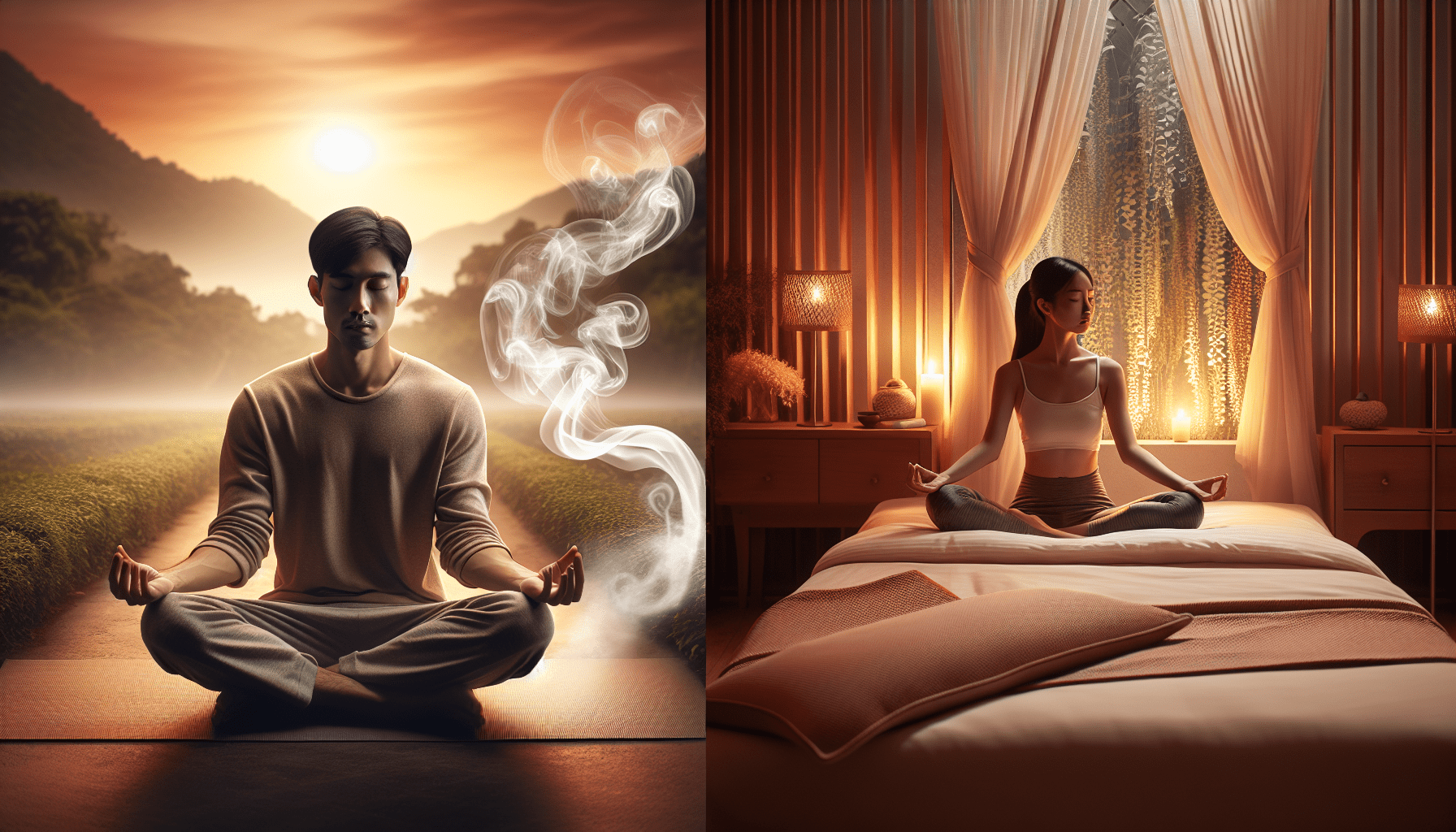In this article, you will explore the benefits of holistic approaches to managing sleep disorders. By addressing the mind, body, and spirit as a whole, holistic methods can provide long-lasting relief and improve overall well-being. From natural remedies to lifestyle changes, you will discover a variety of techniques to help you achieve a better night’s sleep without relying on medication alone. Let’s dive into the world of holistic approaches to sleep disorders and start your journey to a more restful night’s sleep. Have you been struggling to get a good night’s sleep? If so, you’re not alone. Many people suffer from various sleep disorders that can impact their overall well-being. In this article, we will explore holistic approaches to addressing sleep disorders and improving the quality of your rest. From lifestyle changes to natural remedies, we will cover a range of methods to help you achieve better sleep.

Understanding Sleep Disorders
Sleep disorders affect millions of people worldwide and can have significant impacts on physical and mental health. From insomnia to sleep apnea, there are various conditions that can disrupt your sleep patterns and leave you feeling tired and irritable. Understanding the root cause of your sleep disorder is crucial to finding effective solutions.
Insomnia
Insomnia is one of the most common sleep disorders, characterized by difficulty falling or staying asleep. It can be caused by stress, anxiety, poor sleep habits, or underlying health conditions. If you find yourself tossing and turning at night, unable to drift off to sleep, you may be suffering from insomnia.
Sleep Apnea
Sleep apnea is a serious sleep disorder that involves pauses in breathing during sleep. These pauses can last for seconds to minutes and occur multiple times throughout the night. Sleep apnea can lead to fragmented sleep, daytime fatigue, and other health complications if left untreated.
Restless Leg Syndrome (RLS)
Restless Leg Syndrome is a condition characterized by uncomfortable sensations in the legs and an uncontrollable urge to move them. These sensations typically occur at night and can interfere with falling asleep and staying asleep. RLS can leave you feeling restless and fatigued during the day.
Circadian Rhythm Disorders
Circadian rhythm disorders are disruptions in the body’s internal clock, which regulates the sleep-wake cycle. Shift work, jet lag, and other factors can disrupt your circadian rhythm, leading to sleep disturbances and daytime sleepiness. Balancing your body’s internal clock is essential for maintaining healthy sleep patterns.
Holistic Approaches to Sleep Disorders
Taking a holistic approach to sleep disorders involves addressing the root causes of your sleep issues and implementing natural remedies to improve your sleep quality. By focusing on lifestyle changes, stress management, and relaxation techniques, you can create a bedtime routine that promotes restful sleep. Let’s explore some holistic approaches to sleep disorders:
Establishing a Bedtime Routine
Creating a bedtime routine can help signal to your body that it’s time to wind down and prepare for sleep. Avoiding screens, caffeine, and heavy meals before bed can promote relaxation and improve your sleep quality. Try to go to bed and wake up at the same time each day to establish a consistent sleep schedule.
Relaxation Techniques
Practicing relaxation techniques such as deep breathing, meditation, or gentle yoga before bed can help calm your mind and body. These techniques can reduce stress and anxiety, making it easier to drift off to sleep. Incorporating relaxation techniques into your bedtime routine can improve your sleep quality and overall well-being.
Sleep Hygiene
Maintaining good sleep hygiene is essential for promoting healthy sleep habits. This includes creating a comfortable sleep environment, keeping your bedroom dark and cool, and investing in a supportive mattress and pillows. By optimizing your sleep environment, you can enhance your sleep quality and duration.
Herbal Remedies
Certain herbal remedies, such as valerian root, chamomile, and lavender, have been used for centuries to promote relaxation and improve sleep. These natural remedies can help reduce anxiety, calm your mind, and facilitate restful sleep. Consult with a healthcare provider before using herbal remedies to ensure they are safe for you.
Acupuncture
Acupuncture is a traditional Chinese medicine practice that involves inserting thin needles into specific points on the body to restore balance and promote healing. Acupuncture has been shown to be effective in treating sleep disorders, including insomnia and sleep apnea. By stimulating key points on the body, acupuncture can improve sleep quality and overall well-being.
Massage Therapy
Massage therapy can help relax muscles, reduce tension, and promote relaxation, making it easier to fall asleep and stay asleep. By incorporating regular massage sessions into your self-care routine, you can improve circulation, reduce stress, and enhance your overall sleep quality. Find a qualified massage therapist who specializes in treating sleep disorders.
Cognitive Behavioral Therapy (CBT)
Cognitive Behavioral Therapy is a type of talk therapy that focuses on identifying and changing negative thought patterns and behaviors that contribute to sleep problems. CBT can help you develop healthy sleep habits, manage stress and anxiety, and improve your overall sleep quality. Working with a licensed therapist trained in CBT can help you address the underlying causes of your sleep disorder.

Conclusion
Sleep disorders can have a significant impact on your quality of life, affecting your physical and mental well-being. By taking a holistic approach to addressing sleep issues, you can improve your sleep quality and overall health. From establishing a bedtime routine to incorporating relaxation techniques and natural remedies, there are many ways to enhance your sleep experience.
Remember to consult with a healthcare provider or sleep specialist if you are experiencing persistent sleep problems or suspect you have a sleep disorder. They can help you diagnose the underlying cause of your sleep issues and recommend appropriate treatment options. By prioritizing your sleep and well-being, you can enjoy restful nights and productive days. Sweet dreams!

